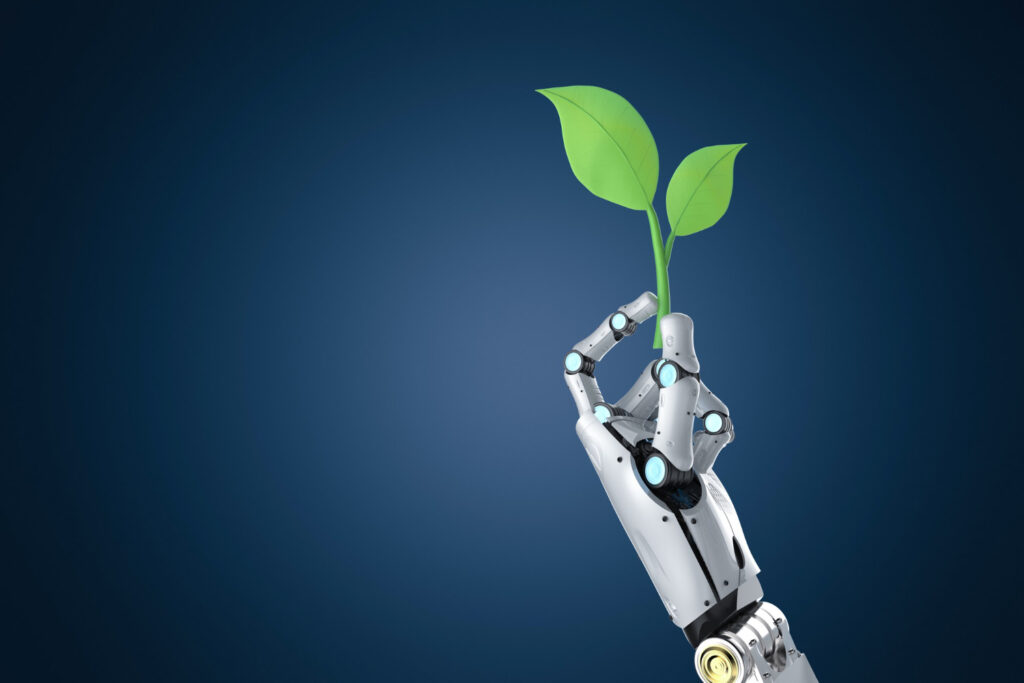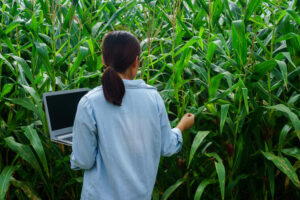Biotechnology: a solution to hunger?

El arroz dorado y el algodón Bt son ejemplos clave del potencial de la biotecnología para mejorar la nutrición y la sostenibilidad agrícola.
Biotechnology has emerged as a possible solution to the global problem of hunger, which affects millions of people, especially in developing countries. This ever-evolving field has the potential to transform agriculture and improve food security, but it also presents several challenges that must be carefully considered.
Agricultural biotechnology refers to the use of advanced techniques to genetically modify crops and improve their yield, disease resistance, and adaptability to different climate conditions. Genetically modified crops, such as those containing genes from different species, have been designed to resist pests, tolerate extreme weather conditions, and increase productivity. This has led to more efficient crops that could be key to meeting the growing global food demand.
A notable example of biotechnology’s advances is golden rice, designed to combat vitamin A deficiency, which affects millions of people, especially in Africa and Southeast Asia. This rice contains genes from daffodil and bacteria that allow it to produce provitamin A, an essential nutrient for child development. The widespread availability of this rice could save lives, especially in countries where vitamin A deficiency is a leading cause of blindness and child mortality.
Challenges and concerns about genetically modified crops
Despite biotechnology’s promising advances, there are various concerns surrounding the use of genetically modified crops. One of the main issues is the environmental impact, as some GM crops could harm biodiversity, affect soil fertility, and transfer unwanted traits to nearby wild species. In addition, the excessive use of pesticides and fertilizers in these crops could result in the creation of super pests and the depletion of natural resources.
Another major challenge relates to intellectual property rights (IPRs). Many biotechnological innovations are controlled by private companies, which could jeopardize farmers’ autonomy, especially in developing countries. The fact that farmers must purchase seeds every season and cannot reuse them could generate dependence on large corporations and affect local food security. While some companies have waived patents on certain crops, private control of biotechnology remains a controversial issue.
Biotechnology and sustainability in agriculture
Despite the associated risks, biotechnology has great potential to improve agricultural sustainability and reduce poverty in regions most affected by hunger. The adoption of crops more resistant to diseases and pests can reduce the need for chemical inputs such as pesticides and fertilizers, which would lower the environmental impact of agriculture. Moreover, biotechnology could contribute to greater efficiency in the use of natural resources like water and land, helping to produce more food with less.
The example of India, where millions of farmers grow Bt cotton, demonstrates how biotechnology can improve profitability and agricultural sustainability. Bt cotton has allowed farmers to reduce insecticide use by 39%, which in turn has increased yields and profits. This type of progress could also be applied to other essential crops like maize, wheat, and soybeans, thereby improving food security in developing countries.
In terms of biofuel production, biotechnology could also play a crucial role. The extraction of vegetable oil has increased significantly thanks to biotechnological methods, which could provide a sustainable alternative to the use of hydrocarbons. In the context of depleting oil reserves, biofuels derived from vegetable oils, such as biodiesel, could compete with fossil fuels, reducing pressure on natural resources and contributing to more ecological agriculture.
Biotechnology offers enormous possibilities to address the challenges of hunger and malnutrition worldwide. However, its implementation must be carefully regulated to avoid potential environmental and social risks. As new technologies are developed, it is essential that developing countries have fair and equitable access to them. If properly managed, biotechnological advances can be a powerful tool to achieve more sustainable agriculture, improve food security, and reduce global poverty.








